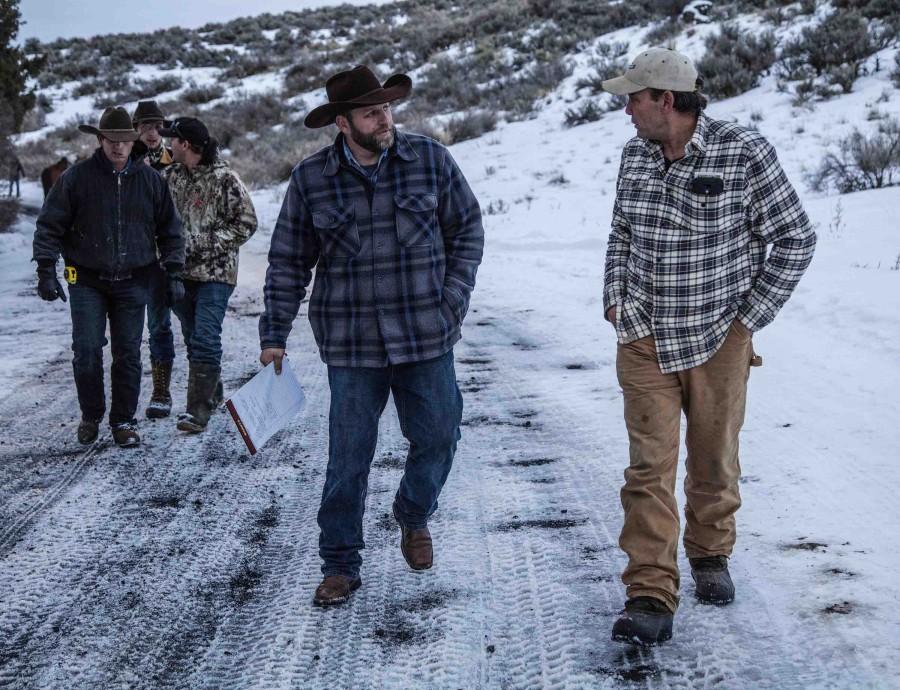Social media and the Bundy blues
Protest leader Ammon Bundy, holding papers, and others walk up from the Malheur National Wildlife Refuge headquarters compound on Thursday, Jan. 7, 2016, to speak to news reporters about their armed occupation. (Steve Ringman/Seattle Times/TNS)
Jan 28, 2016
As civil-minded folk, we should be totally invested in the idea of speaking honestly and precisely about serious issues in the national dialogue. Yet, a search of ‘Bundy’ (or any other issue, for that matter) on any of the giant social media outlets reveals a cesspool of crude, inaccurate and unserious political conversation.
On Tuesday, Jan. 26, LaVoy Finicum, the spokesperson for the armed individuals who have occupied an Oregon wildlife refuge for the past 26 days, was shot and killed upon resisting arrest, and Ammon Bundy himself was arrested.
One would hope that the discussion about this news item would include topics like false martyrdom, Second Amendment issues and perhaps even federal land control in the west. Instead, the people respond with irony, name calling and humor.
The effect that social media has on political dialogue is dangerous, and the reason for this resides in how we use social media. Social media, like Facebook and Twitter, is more than just a way to connect with other people. More often than not, people use social media as a way to portray and advertise themselves to others.
So, instead of being totally honest and open, people paint themselves in favorable ways. Thus, when it comes to political expression, people are less likely to share something that goes against the political grain of their friend circles. Even worse, people are more likely to share things ironically and facetiously in order to garner likes and interest.
Not that I ever expected anything interesting or worthy of my time from a medium where people express themselves with 140 characters, but I decided to look at the Twitter buzz related to the Bundy conversation anyway. It is atrocious.
These are the hashtags I ran into: #BranchStupidian, #CamoJockey, #Cowliphate, #DaeshBag, #TaliBanjo, #TaliBundy, #VanillaISIS, #YallQaeda and #YeeHawdists. Opening your message with a hashtag like this is not a way to begin any sort of serious political conversation.
Besides being totally unserious and childish about a real issue, my problem with most of these hashtags is the inaccuracy. Like it or not, the Bundy protestors are not terrorists.
They are not using terror to achieve political aims. They are not scaring people. They are not holding hostages. None of the general sentiments surrounding this politically and emotionally charged word, terrorist, apply here. Calling them terrorists does real damage to the language. If the use of the word terrorist wasn’t already too broad, repeated use of the word in this context only makes it broader.








